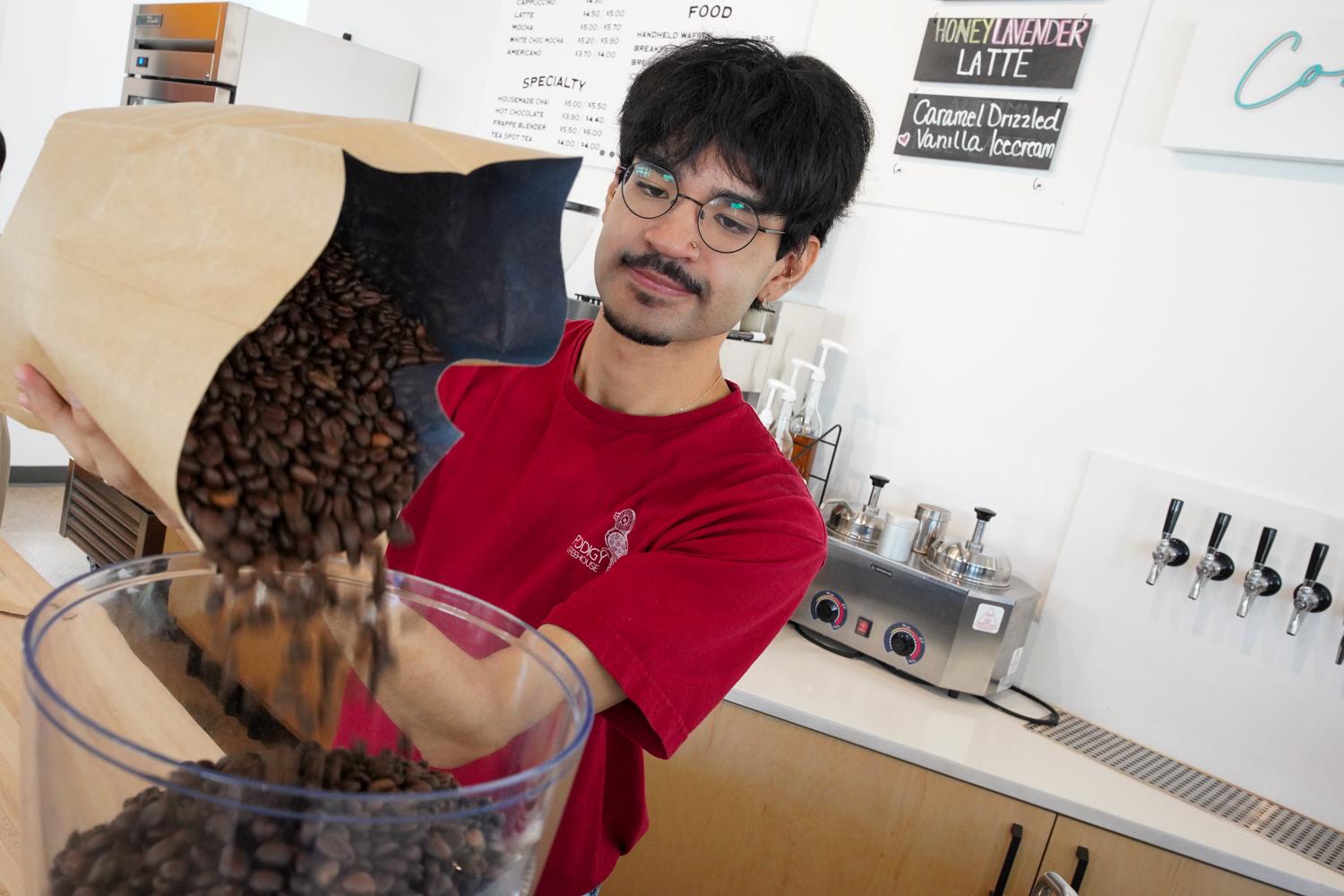Back in 2016, Emilia Cano's cousin called her and said, "Hey, there's a mural of you on 40th and Colorado."
Cano, of course, was confused. Why would there be a mural of her on a random building? Cano laughed it off and let it go but a few weeks later she happened to drive by the business at 3801 E. 40th Ave. and saw what her cousin was talking about.
It was a mural of a quetzal, an iridescent bird native to Mexico and South America with a red belly and green or golden-green wings. Cano laughed because her cousin was right. Cano is Native and her Native name, Quetzalli, means "precious bird."
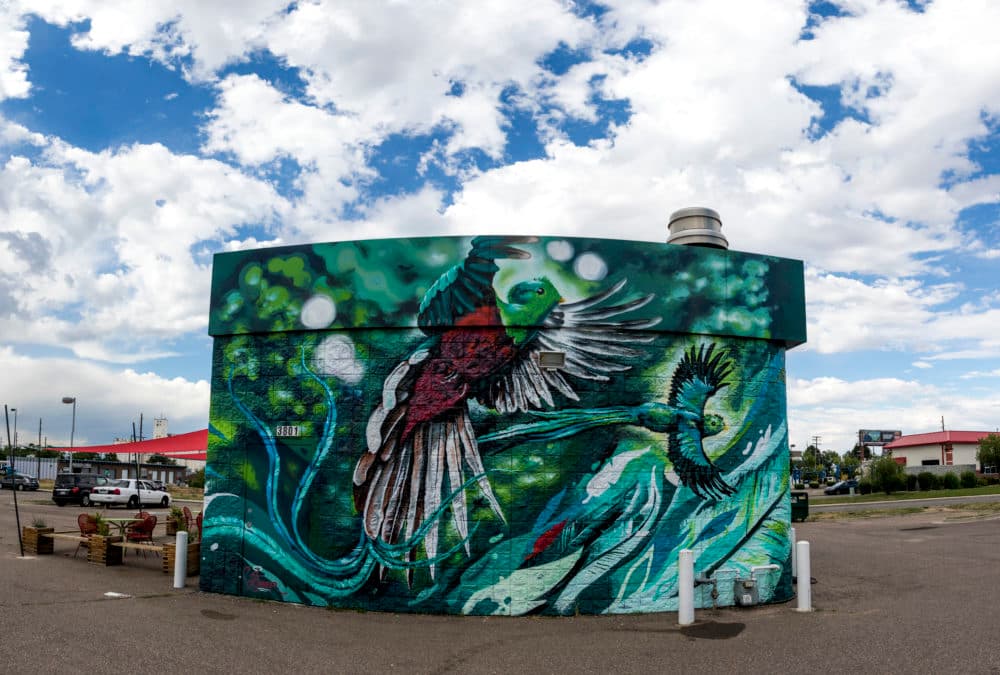
The mural captured Cano's curiosity. What is this place that has a mural of something so important to her?
That was Cano's first introduction to Prodigy Coffeehouse.
"This bird has always been special to me. It's my name, my mom calls me that," Cano said. "I looked it up online, saw it was a coffee shop and said let's just apply and see."
Cano got the job and has worked at Prodigy, pretty much, ever since.
Prodigy Coffeehouse is a nonprofit social enterprise that employs local
young adults, ages 18 to 24, through an apprentice program who aren't finding success in traditional schooling or workplaces, and who need a more supportive community - whether that support be through mental health services, healing circles, working through learning curves or simple social interactions.
Founder Stephanie Frances said the apprenticeship is about gaining both life and career skills. Frances previously worked in career development, specifically at alternative schools in Denver, where she realized traditional schooling doesn't prepare everyone for the real world. It can lack engagement, stimulation, relevancy and, often times, are highly and systemically discriminatory.
"We're told a lot of fallacies about why people dropout of school and we love to blame them for it," Frances said. "I've seen those same young people be motivated and excited to learn but the environment wasn't engaging. And they don't resemble the workplace."
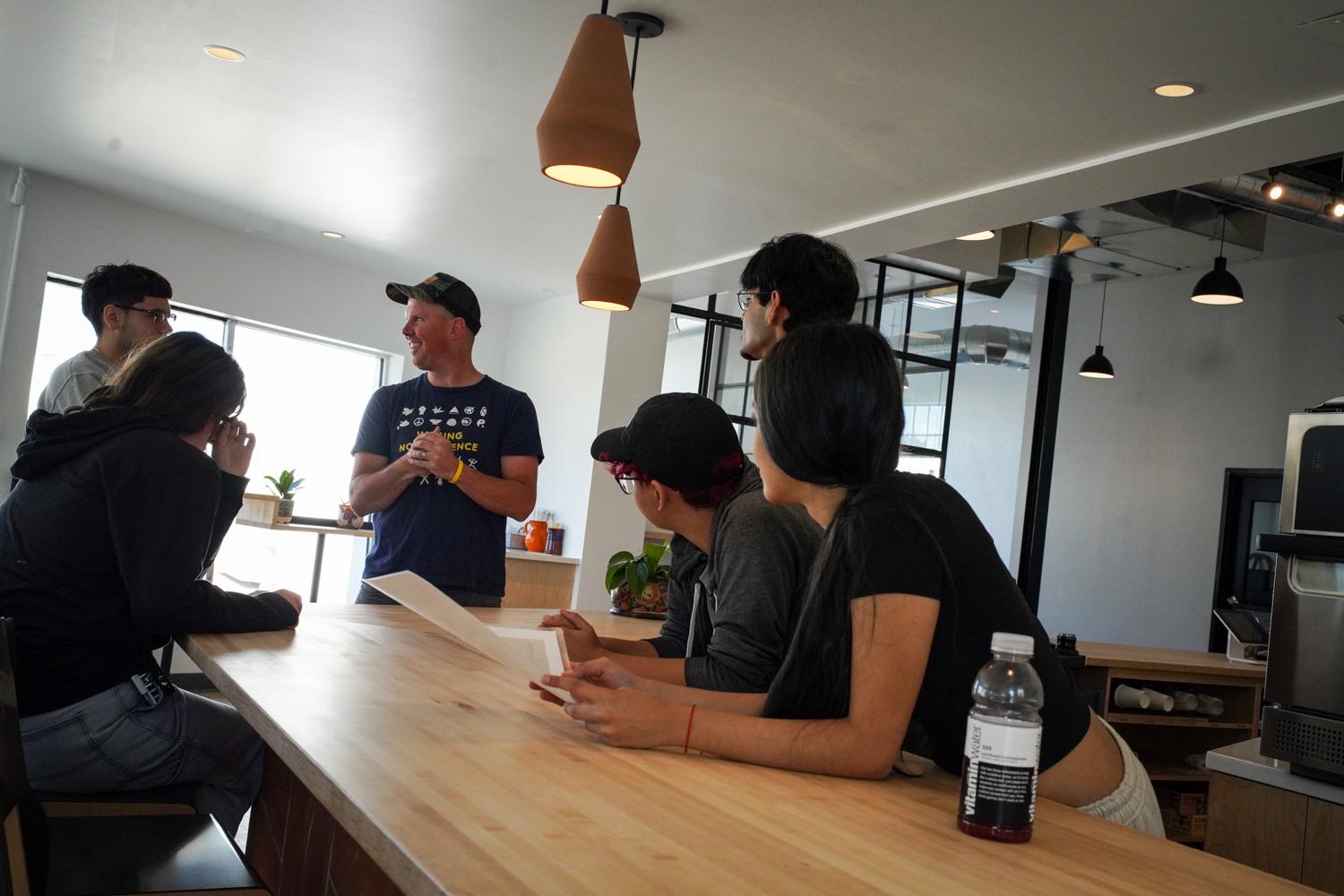
Through Prodigy, Frances said apprentices learn about the ins and outs of the coffee industry from roasting, to brewing, to customer service during a 12 to 18 month program. In between those studies, apprentices work on themselves.
Frances said she decided to have this social program revolve around the coffee industry because there's room to grow and skills are ultimately translatable to other careers. Coffee, Frances said, is a craft and, in honing a craft, apprentices learn deeply and that deep learning fosters higher levels of engagement.
"Workplaces, many of them, are organically set up for engaged learning," Frances said. "Plus, you can make a living wage in the craft coffee industry in Denver... We don't care about building a pipeline of barista talent in the city. Apprentices may or may not want to be in the coffee industry for the rest of their lives but it's a stabilizing way to get on your feet."
The program works in phases.
Frances said the first part is about gaining confidence and competence, learning basic barista skills and basic workplace skills. The second phase is a deeper dive into personal development and leadership development.
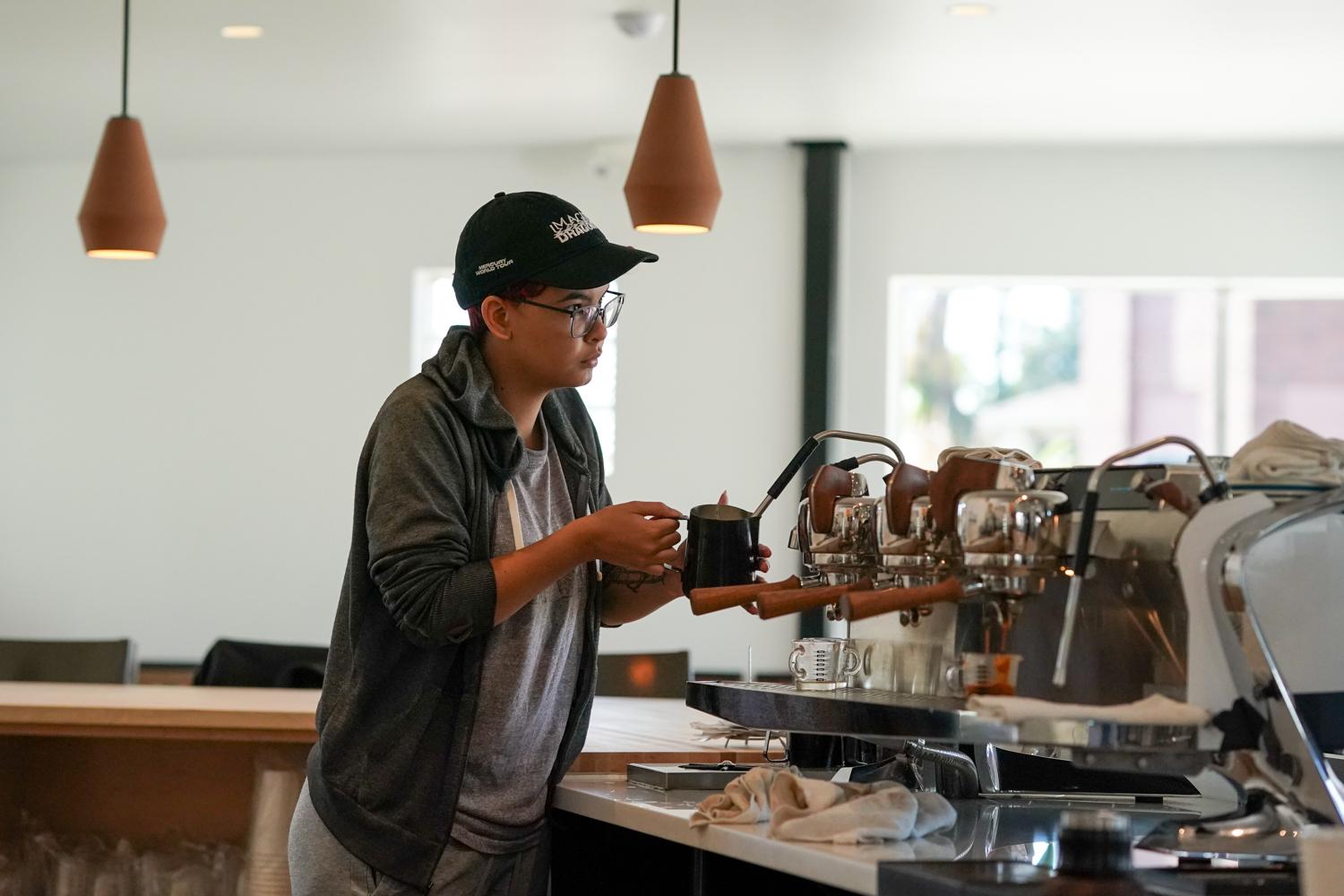
Frances said this phase allows apprentices to dive into their histories and "dissect power dynamics and how our society is structured around those dynamics."
"It's about learning, "Who am I? What do I want to be? What motivates me? What are my assets that I can invest in and my strengths that are going to bring me joy,'" Frances said.
The third phase is focused on transitioning their learned skills to work outside of the Prodigy realm. Frances said apprentices have been recruited to work at higher-end craft coffee shops, such as Blue Sparrow, while some have gone on to receive roasting certifications or stayed on with Prodigy becoming shift leaders.
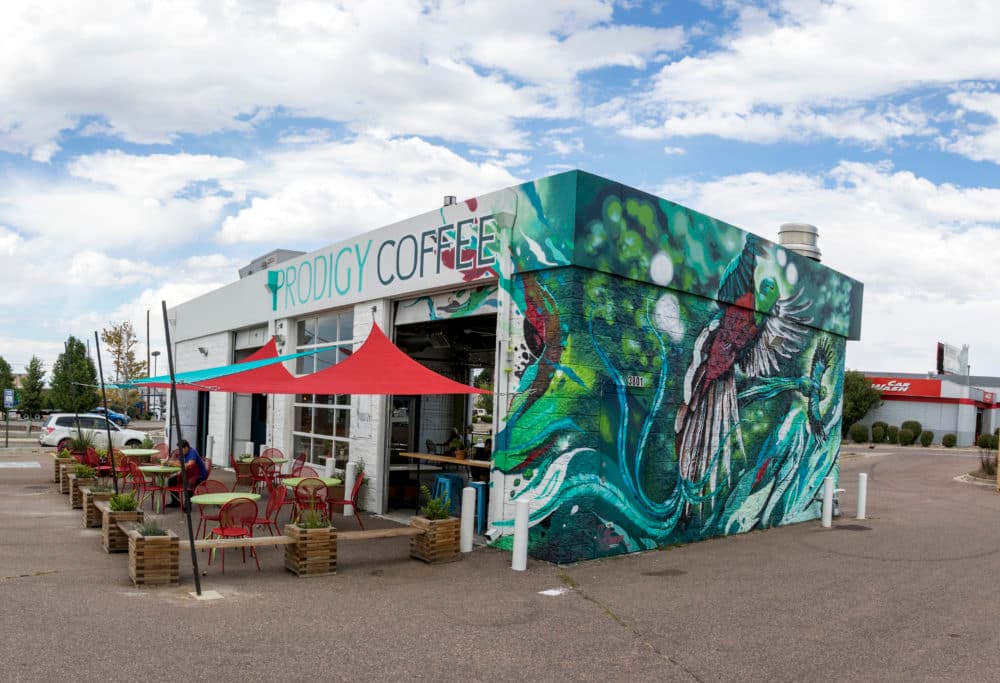
Prodigy opened in 2016 at the corner of 40th and Colorado, where the neighborhood borders of Elyria-Swansea, Northeast Park Hill and Clayton meet.
Cano was part of the first class of apprentices and at first, didn't think the program was right for her. She was attending Metro State and came from a big family who had lived in Five Points/Curtis Park for five generations.
At the time, Cano was also watching her neighborhood change. People were moving away. Rent was increasing. More and more people knocked on her door to purchase her father's home, which he built from the ground up. Five Points was in its beginning phases of gentrification and for Cano, that brought up mixed feelings about Prodigy.
At this point, signs of gentrification are easy to see. New apartment buildings shoot up in bland neutral colors. Potholes get fixed quickly and, the universal sign, the arrival of a coffee shop, like Prodigy.
It also didn't help that other coffee shops like ink! Coffee were ignorantly branding themselves as happy neighborhood destroyers in Cano's community.
Cano was angry and she said she had to take a step back from Prodigy.
"I needed to step away," Cano said. "I'm super against colonization and colonialism and I felt like that's what Prodigy was for me in that moment. They're in my neighborhood. Yeah, you're hiring kids in this neighborhood but what are you doing for them? What have I learned in this process? I needed to back up and I needed to see what gentrification means to me."
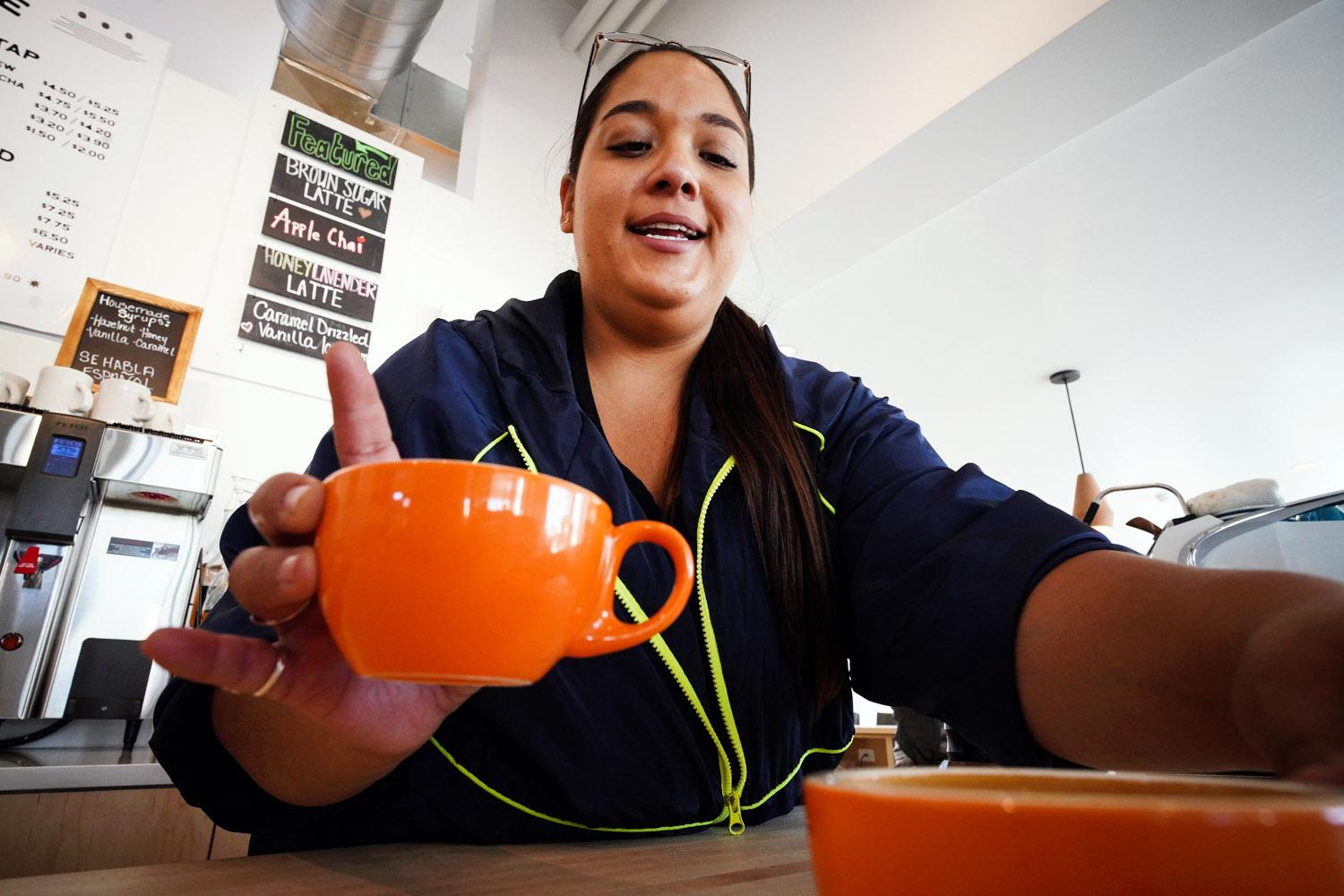
Cano said Prodigy was a bit shocked when she left, but ultimately understanding and soon became relentless. They kept in touch with her, texting her occasionally to see what she was up to and keeping the door open for her to return whenever she wanted to.
It was that open door, Cano said, that drew her back to the organization. The method, of giving people just enough space to feel free while still letting them know they have a place to return to if they need it, is something Cano said no job would ever do. Cano was in her last semester at MSU and needed some help with her resume, so she stopped by the coffee shop and was sucked back into the program.
Cano worked her way through Prodigy leadership and became an operations manager. She recently transitioned to help lead the educational side of programing, teaching barista skills but focusing more on the personal growth side. It's that side of Prodigy that keeps Cano coming back to work. It's an opportunity to help youth she connects with because they are from the same areas and have gone through similar experiences.

She also realized that, while Prodigy can be a symbol of gentrification, it can be the side of gentrification that helps the community as opposed to displacing it.
"Gentrification is going to happen with or without you," Cano said. "It's happening all around us every day and it's going to continue to happen for generations to come. I can't beat it but let me at least try and join it and see if I can shape it. I learned at a young age, my voice matters. And at Prodigy, they give us a space to be able to use our voices."
And Cano's using her voice to continue to make Prodigy an equitable workplace and an equitable community space for the neighborhood. She was instrumental in helping Prodigy open their second shop in Globeville.
The 4500 Broadway location opened in September and is slowly becoming a neighborhood gathering place, like a coffee shop is supposed to be.
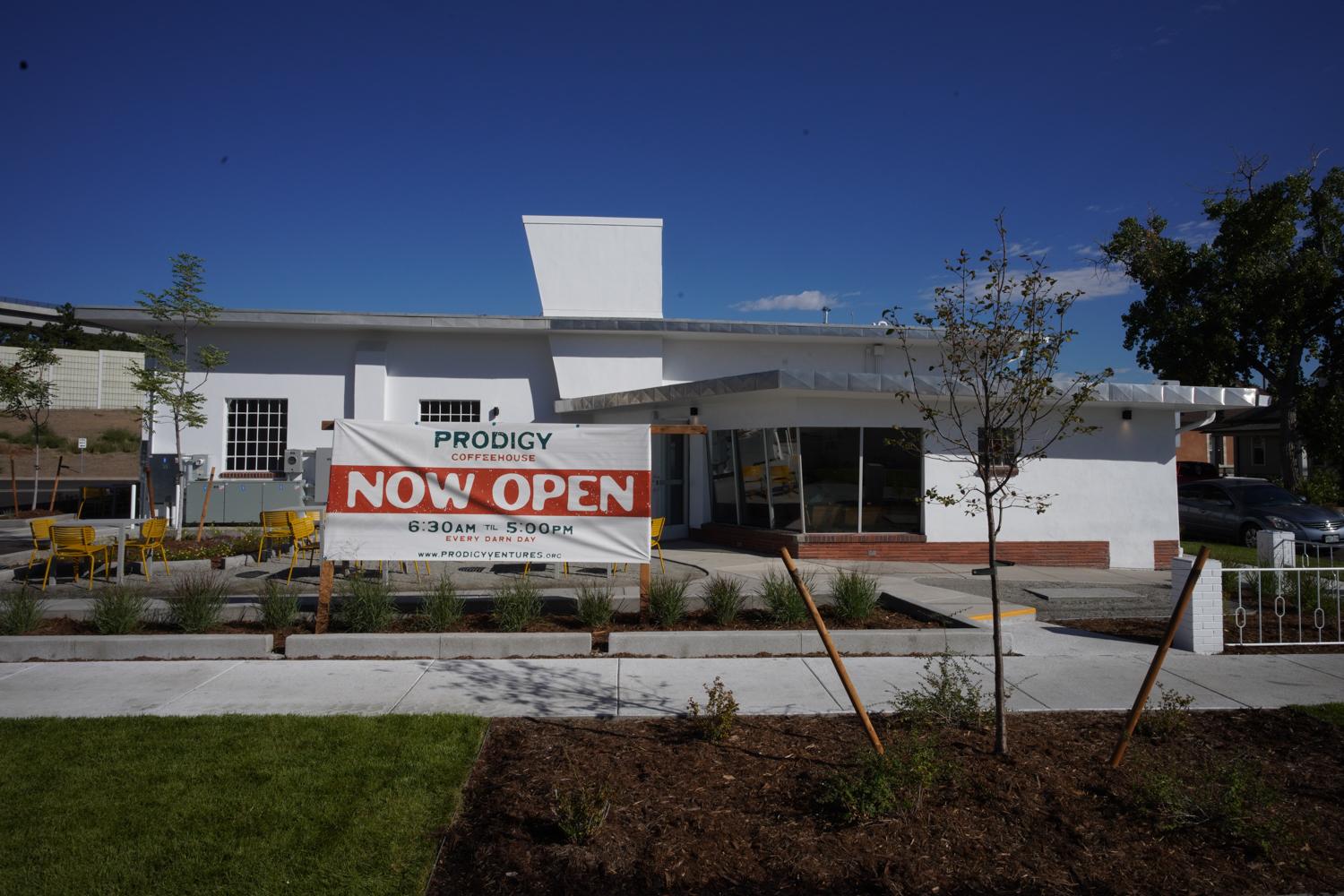
Globeville is experiencing its own changes, and Cano said she wonders if the neighbors would think that Prodigy is a representation of upcoming gentrification.
Because, in its own way, it is, Cano said.
"Is there anything like this in Globeville now? No," Cano said. "What's in Globeville now? Construction."
But the difference, Cano said, is when residents walk into the new location, they see people from the neighborhood behind the counter earning a livable wage. The coffee is high-end but affordable, ($5 for a large iced mocha and $2.50 for a plain hot coffee). There are no time limitations. There's a large private space folks can hold meetings in. It's the bougie space neighbors want that was built for them instead of newcomers.
Cano said, so far, the reception has been great. The shop held a grand opening party, where residents commended them on the open, bright space and the affordable, tasty coffee.
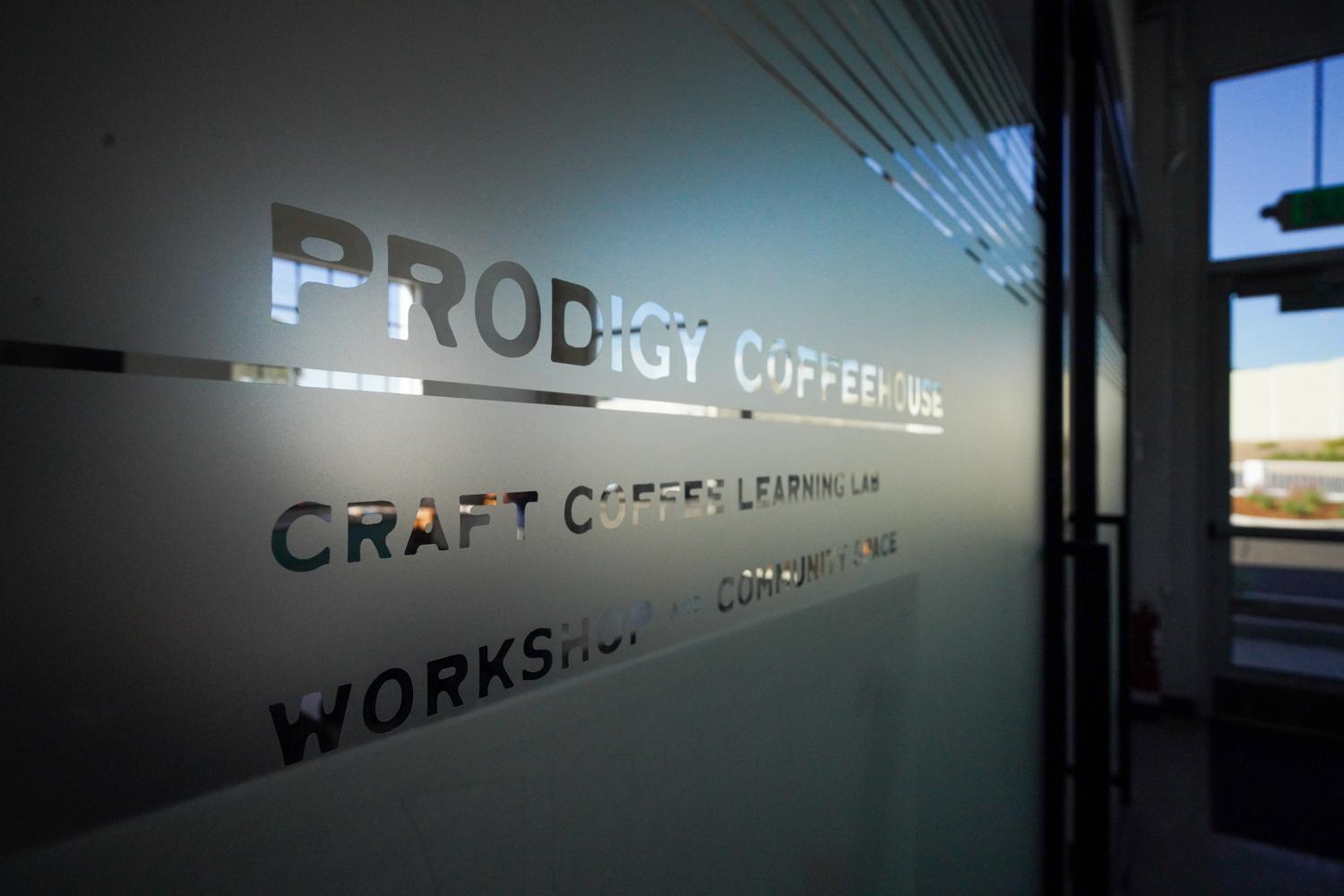
Frances said she'd like to open more Prodigy locations but no more than five. And there's no shortage of possible workers. Frances and Cano said they are not experiencing a labor shortage in the slightest and that speaks to the environment.
"I hope that we continue to be real," Cano said. "I hope we continue to be open to new things. We want to be able to increase our impact. We're at six years and I just want to continue to create impact, happiness, joy, healing, all the things. We're offering a delicious cup of coffee, craft coffee, at a low price point. We're here for our community both in and out, and we hope our community loves us."

